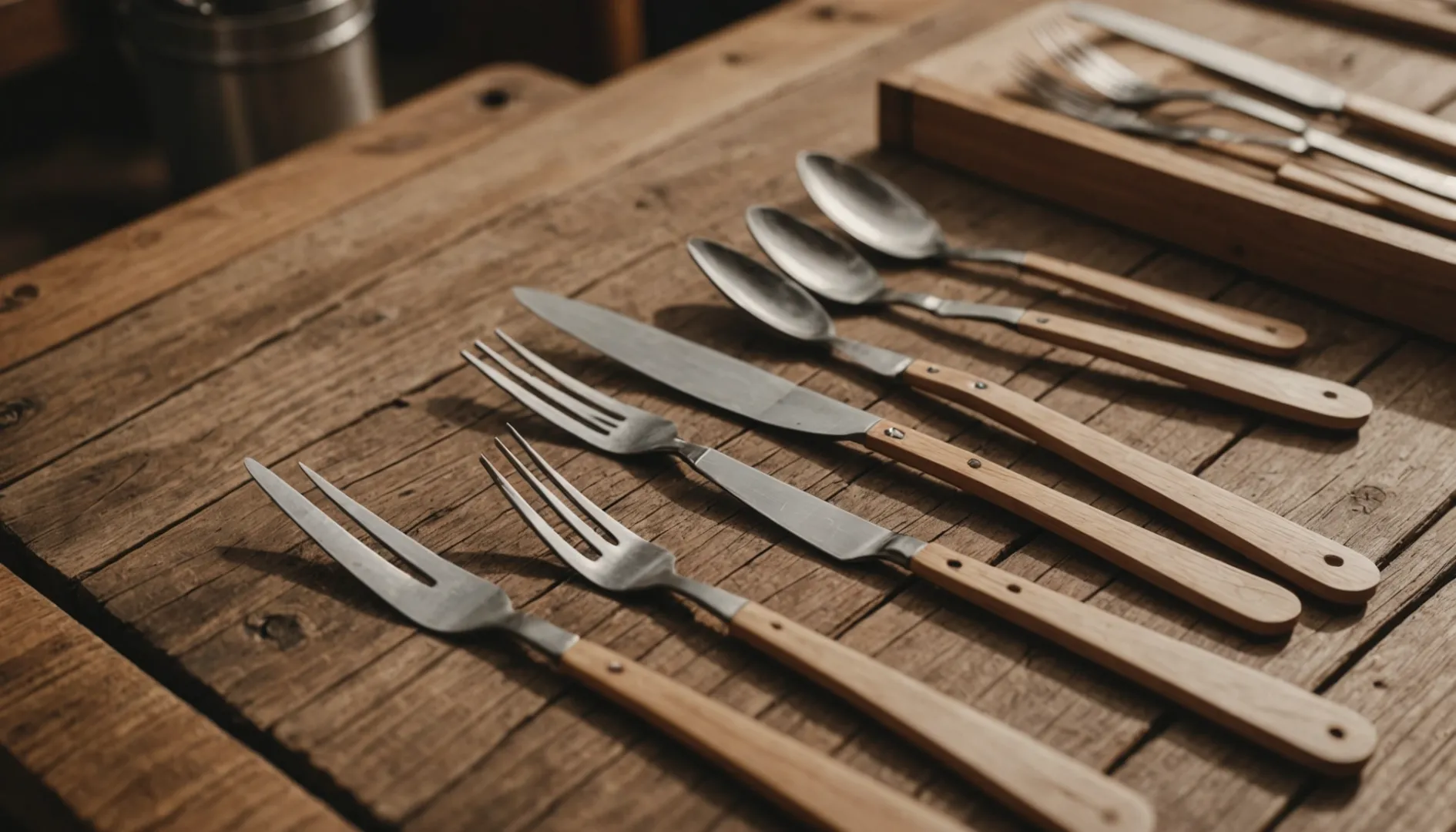
Are you searching for eco-friendly cutlery options that won't break the bank? Let me take you on a journey to discover sustainable solutions that fit your needs!
Large disposable wooden cutlery can be found at wholesale prices through suppliers specializing in eco-friendly products. Many suppliers in California and Texas offer bulk purchasing options, making it easy for businesses and event planners to access sustainable cutlery solutions.
While this answer points you in the right direction, diving deeper into the specifics of sourcing, maintaining, and understanding the benefits of wooden cutlery can enhance your decision-making process. Read on to learn about suppliers, care tips, and sustainability aspects.
Wooden cutlery is more eco-friendly than plastic cutlery.True
Wooden cutlery is biodegradable, compostable, and sourced sustainably, unlike plastic.
What Are the Best Suppliers for Wholesale Wooden Cutlery in California and Texas?
Looking for the best wholesale suppliers of wooden cutlery in California and Texas?
Top suppliers for wholesale wooden cutlery in California and Texas include companies that prioritize sustainable sourcing, eco-friendly manufacturing practices, and competitive pricing. Notable names such as EcoPack, Greenline Distribution, and World Centric offer a range of biodegradable cutlery options suitable for various needs.
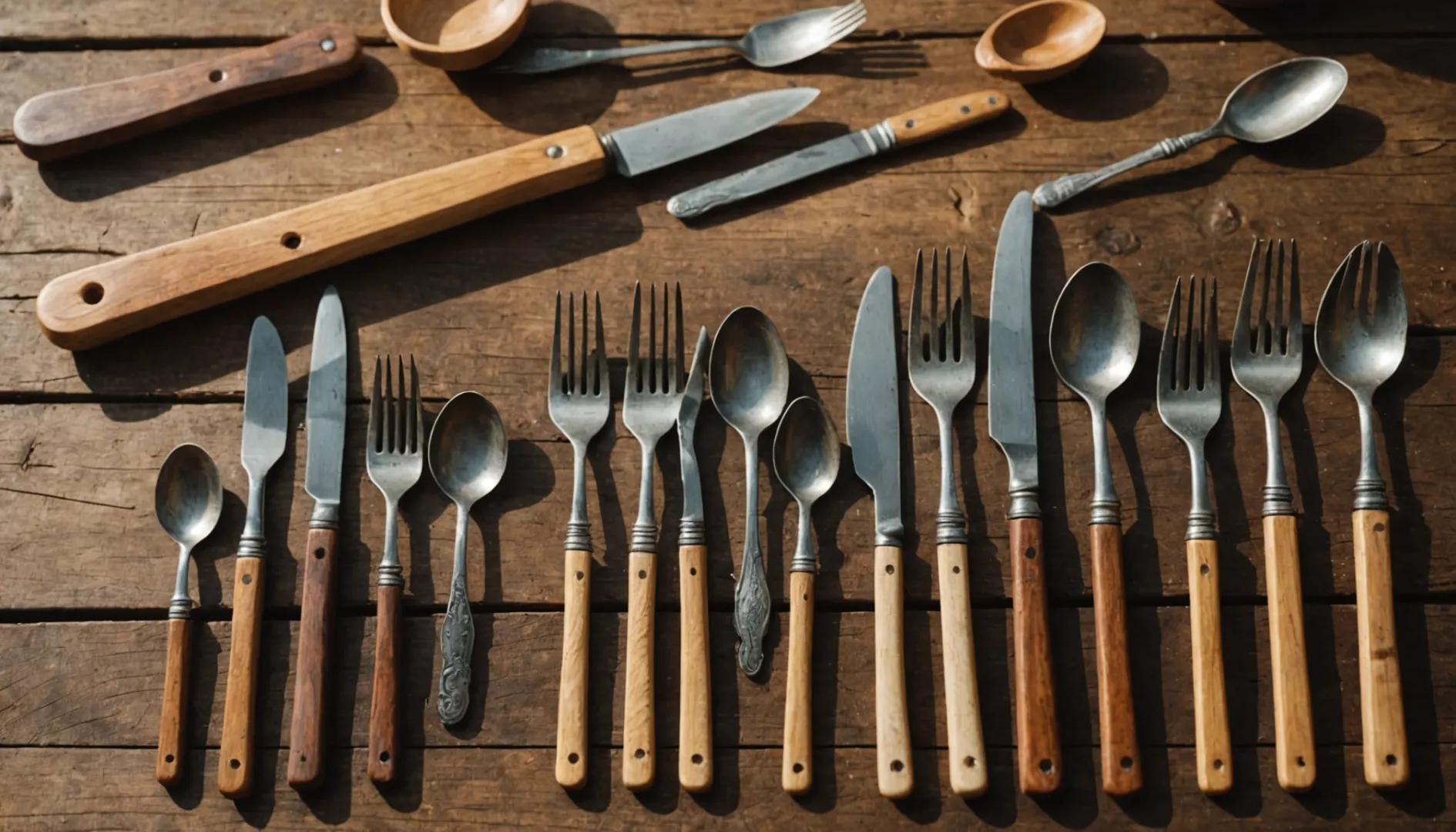
Understanding the Supplier Landscape
Finding reliable suppliers for wholesale wooden cutlery involves understanding their sourcing practices1 and how these impact both quality and sustainability. In California and Texas, several suppliers stand out for their commitment to eco-friendly products.
Notable Suppliers in California
-
EcoPack: Known for its high-quality biodegradable cutlery, EcoPack sources wood from sustainably managed forests. They offer a diverse range of options, from basic cutlery to premium, aesthetically pleasing designs. Their products are certified by environmental agencies, ensuring compliance with global standards.
-
Greenline Distribution: This supplier specializes in compostable and biodegradable products, including wooden cutlery. They focus on providing items that are not only environmentally friendly but also durable enough for various dining experiences.
Key Suppliers in Texas
-
World Centric: Based in Texas, World Centric offers a wide variety of compostable cutlery options. Their products are made from sustainably sourced wood, emphasizing minimal environmental impact.
-
BioGreen Choice: This company provides a comprehensive selection of eco-friendly products, focusing on affordability without compromising on quality or sustainability. Their wooden cutlery is favored by many businesses for its balance of price and performance.
Factors to Consider When Choosing a Supplier
When selecting a supplier for wholesale wooden cutlery, consider the following:
-
Certifications: Ensure that the supplier holds relevant eco-certifications, such as FSC or FDA approval, to guarantee product safety and sustainability.
-
Customizability: Some suppliers offer customizable options, allowing businesses to tailor products to their brand needs.
-
Pricing and MOQ (Minimum Order Quantity): Compare pricing structures and minimum order quantities to find the best fit for your budget and demand.
-
Lead Times: Evaluate the lead times for delivery, especially if you have a recurring need or expect increased demand during certain seasons.
By carefully considering these factors, businesses can make informed decisions that align with their sustainability goals and operational requirements.
EcoPack is based in Texas.False
EcoPack is a notable supplier in California, not Texas.
Greenline Distribution offers compostable cutlery.True
Greenline Distribution specializes in compostable and biodegradable products.
How Does Wooden Cutlery Compare to Plastic in Terms of Sustainability?
As eco-awareness rises, consumers increasingly choose between wooden and plastic cutlery for sustainability.
Wooden cutlery is more sustainable than plastic because it is biodegradable, compostable, and often sourced from responsibly managed forests. Unlike plastic, which can take centuries to decompose, wooden utensils break down naturally without releasing toxins. Their production also typically involves fewer harmful chemicals, reducing overall environmental impact.
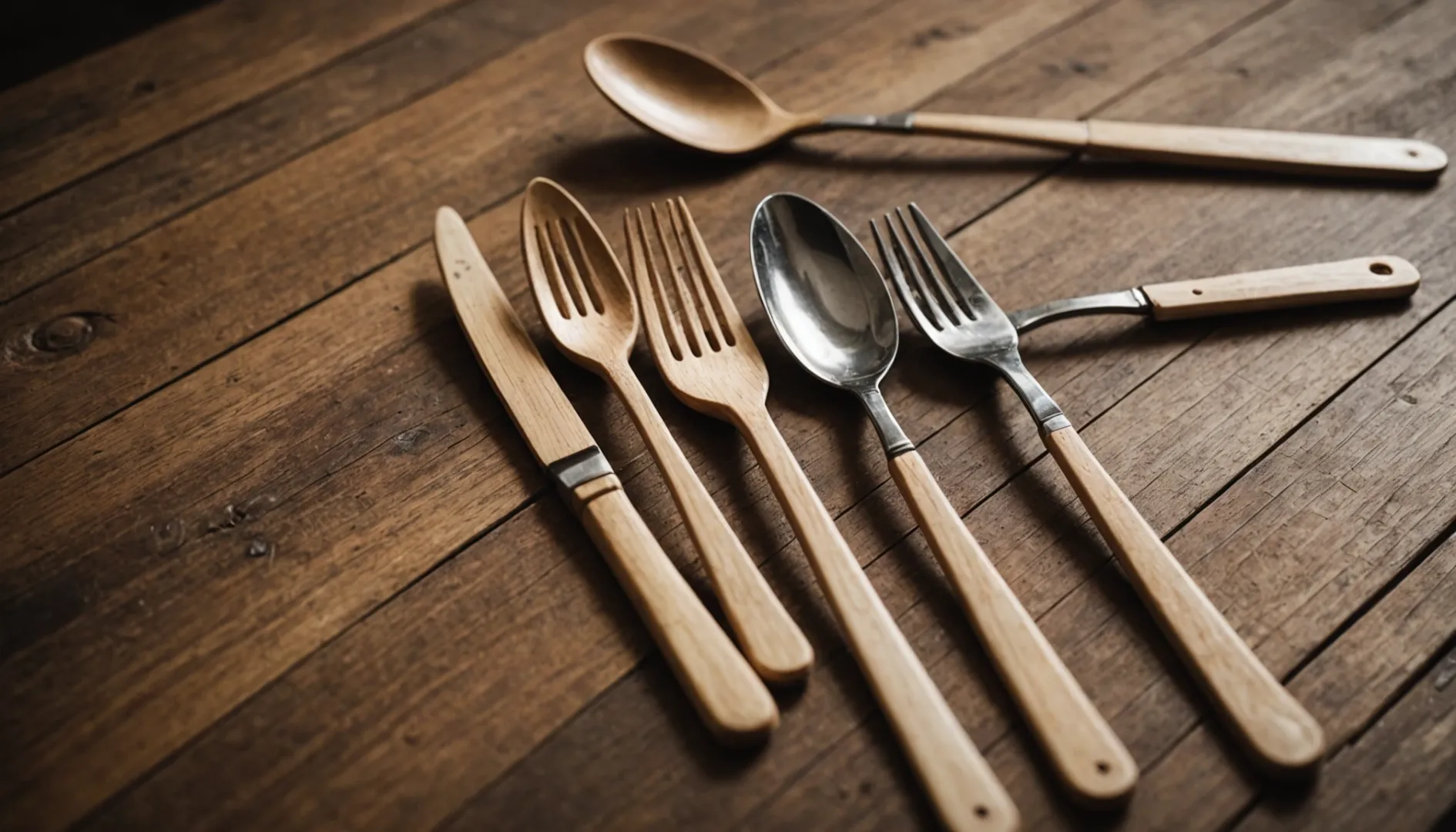
Environmental Impact: A Closer Look
Wooden cutlery stands out as a sustainable choice largely due to its biodegradability and renewable sourcing. Unlike plastic utensils, which are derived from non-renewable petroleum and can persist in the environment for hundreds of years, wooden cutlery decomposes naturally, reducing landfill burden and pollution.
Furthermore, when sourced responsibly, the wood used for these utensils often comes from managed forests where trees are replanted, ensuring a renewable cycle. This practice significantly contrasts with the resource-intensive process of extracting and refining oil for plastic production.
Production and Lifecycle Considerations
The lifecycle of wooden cutlery also highlights its sustainability. The production process is generally cleaner and less energy-intensive than that of plastic. Wooden utensils often require minimal processing, and manufacturers can use natural finishes like beeswax or oils to enhance their durability and resistance to moisture.
However, it's crucial for consumers to verify that their wooden cutlery is sourced sustainably. Certifications like FSC2 provide assurance that the wood is harvested responsibly. In contrast, plastic cutlery often lacks such transparency and contributes significantly to global plastic waste.
Durability and Hygiene
Though wooden cutlery offers many environmental benefits, its durability and hygiene depend on proper maintenance. While high-quality wooden utensils can last for years with care—such as regular oiling and avoiding prolonged water exposure—they require more attention than plastic counterparts.
Plastic utensils, while less sustainable, are typically more durable against moisture and do not require the same level of maintenance. However, they can leach chemicals into food, particularly when exposed to heat.
| Feature | Wooden Cutlery | Plastic Cutlery |
|---|---|---|
| Biodegradability | Fully biodegradable and compostable | Non-biodegradable; persists in landfills |
| Material Source | Renewable resources (e.g., wood) | Non-renewable (petroleum-based) |
| Chemical Use | Minimal; often natural coatings | Often contains toxic additives |
| Maintenance | Requires regular care (oiling) | Low maintenance; disposable |
| Environmental Impact | Lower; decomposes naturally | High; long-lasting environmental harm |
Market Trends and Consumer Preferences
The demand for sustainable products has shifted consumer preferences towards wooden cutlery, particularly among eco-conscious buyers in regions like North America and Europe. This trend is driven by increased awareness of plastic pollution and a desire for more natural product choices.
Manufacturers have responded by innovating with designs that maximize resource efficiency and durability. For instance, some use bamboo fiber3 blends for added strength while maintaining biodegradability.
While the initial cost of wooden cutlery may be higher than plastic, many consumers are willing to invest in sustainability and reduced environmental impact. As regulations on single-use plastics tighten globally, wooden alternatives are poised to become even more popular.
Understanding these aspects can help consumers make informed decisions about the environmental impact of their utensil choices.
Wooden cutlery is biodegradable and compostable.True
Wood decomposes naturally, reducing landfill waste.
Plastic cutlery is more sustainable than wooden cutlery.False
Plastic persists for centuries and releases toxins.
What Are the Best Practices for Maintaining Wooden Cutlery?
Wooden cutlery is a sustainable and stylish alternative to plastic, but requires specific care to maintain its beauty and functionality.
To maintain wooden cutlery, regularly hand wash with mild soap, dry immediately, and apply food-safe oil periodically. Avoid soaking or exposing to high heat to prevent damage.
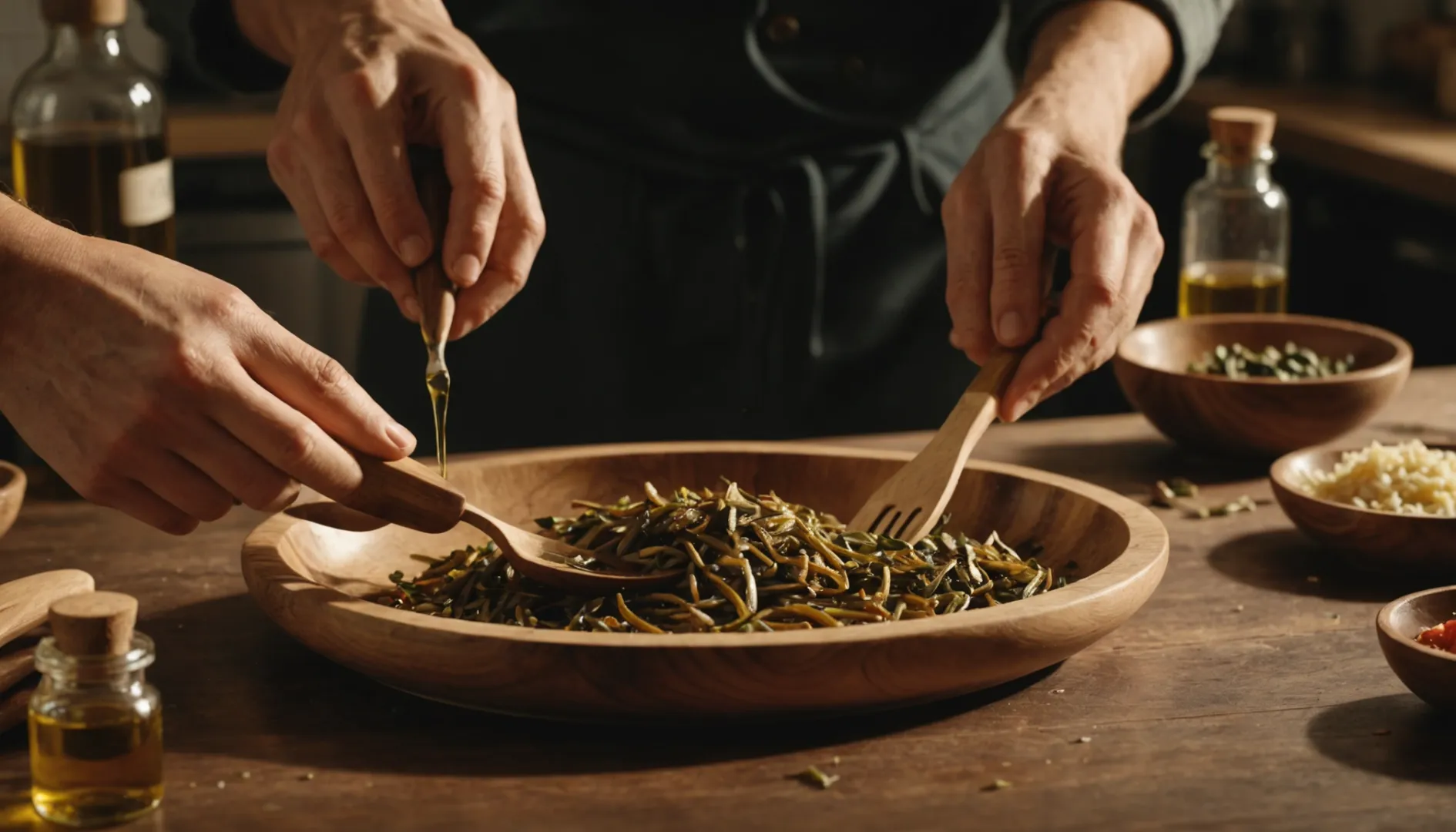
Understanding the Basics of Wooden Cutlery Maintenance
Wooden cutlery offers a blend of sustainability and elegance that many eco-conscious consumers prefer. However, its porous nature means it demands more attention than its plastic counterparts. The key to longevity lies in understanding how to clean, dry, and condition these utensils.
Cleaning and Drying Techniques
Proper cleaning is essential to prevent bacterial growth and maintain the integrity of wooden utensils. Always wash your wooden cutlery by hand using mild soap and warm water. It's crucial to avoid soaking them, as prolonged exposure to water can lead to swelling or cracking.
After washing, dry the utensils immediately with a clean cloth to prevent moisture from seeping into the wood. This simple step can dramatically extend their lifespan.
Regular Oiling for Longevity
Applying a food-safe oil, such as mineral oil or beeswax, is vital for maintaining the moisture balance in the wood. Regular oiling not only enhances the appearance but also prevents cracking and warping.
Here's a basic table for recommended oiling frequencies:
| Usage Frequency | Recommended Oiling Frequency |
|---|---|
| Daily Use | Every 2-3 weeks |
| Occasional Use | Every 4-6 weeks |
For a detailed guide on which oils to use, check out best oils for wooden utensils4.
Storage and Environmental Considerations
Wooden cutlery should be stored in a dry environment, away from direct sunlight or heat sources. High temperatures can dry out the wood, causing it to become brittle. Use a utensil holder that allows air circulation to prevent moisture build-up.
Recognizing Signs of Wear
Inspect your wooden cutlery regularly for signs of wear like cracks or splinters. Addressing these issues early can prevent further damage. Sanding lightly with fine-grit sandpaper can smooth out minor imperfections.
For more insights into prolonging the life of wooden utensils, explore wooden cutlery care tips5.
Wooden cutlery can be washed in a dishwasher.False
Dishwashers can warp or crack wooden cutlery due to high heat.
Regular oiling prevents wooden cutlery from cracking.True
Oiling maintains moisture balance, preventing cracks and warping.
Why Is Eco-Certification Important When Purchasing Wooden Cutlery?
Choosing eco-certified wooden cutlery ensures you're supporting sustainable practices and safe, high-quality products.
Eco-certification for wooden cutlery guarantees that the wood is sourced sustainably and the manufacturing process adheres to environmental standards. Certifications like FSC ensure responsible forest management, while FDA or LFGB approvals indicate safety in food contact. This helps consumers make informed choices aligned with environmental responsibility.
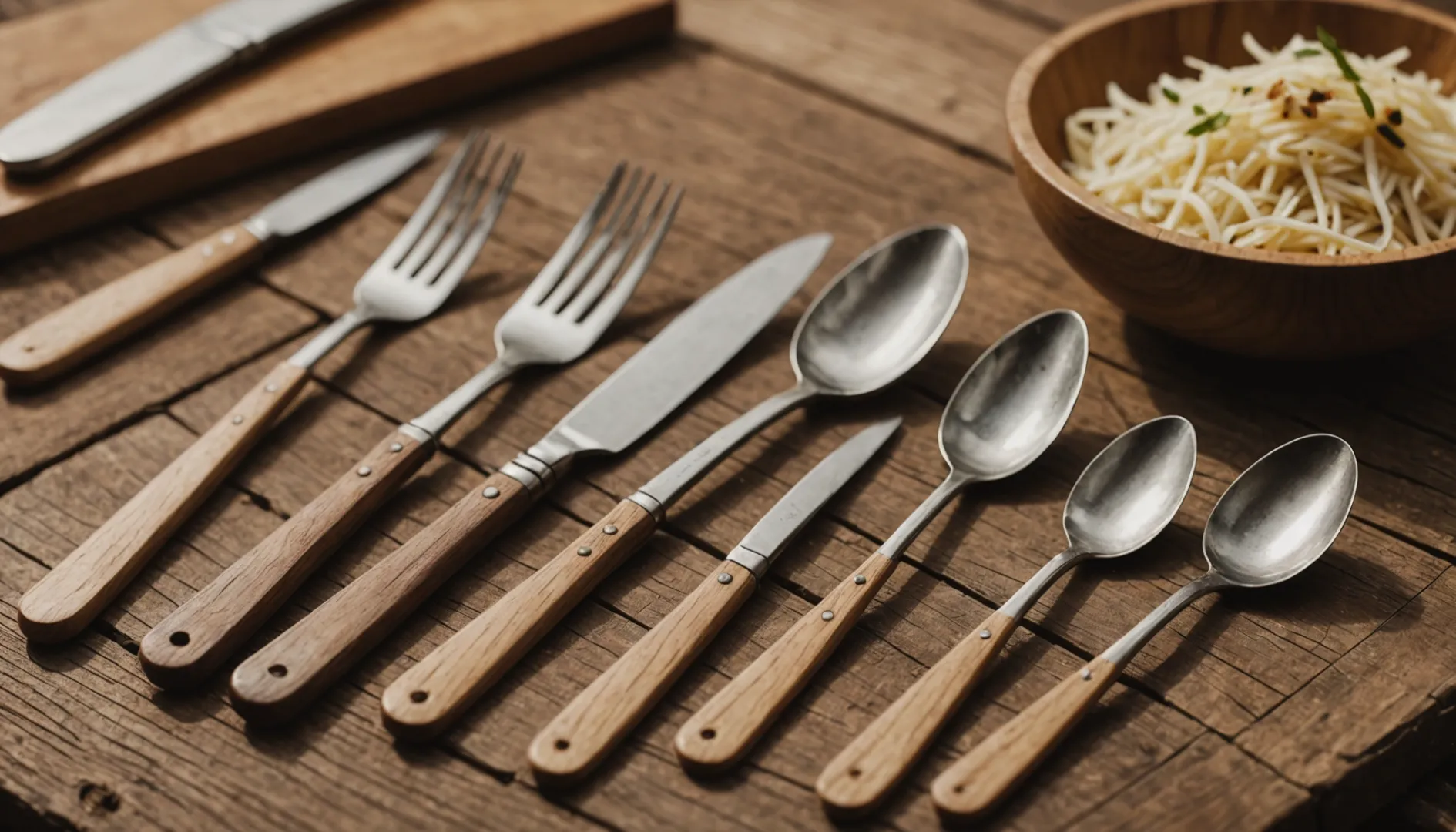
Understanding Eco-Certifications
Eco-certifications serve as a mark of trust and assurance for consumers looking for sustainable products. They ensure that products are not only safe for use but also environmentally responsible. For wooden cutlery, certifications such as the Forest Stewardship Council (FSC) are crucial. The FSC certification6 confirms that the wood used is sourced from responsibly managed forests, protecting ecosystems and local communities.
Importance of Food Safety Standards
When it comes to food contact items like cutlery, safety standards are non-negotiable. Certifications from the Food and Drug Administration (FDA) or similar bodies in Europe, like LFGB, indicate that the wooden cutlery is safe for use with food. These certifications ensure that no harmful chemicals were used during production, which is particularly important for items that interact directly with our meals. Ensuring your cutlery meets these standards protects consumer health and supports ethical manufacturing practices.
The Role of Life Cycle Analysis (LCA)
Life Cycle Analysis provides a comprehensive look at the environmental impact of a product from production to disposal. Companies adopting LCA can offer data-driven insights into how their products minimize waste and energy usage throughout their lifecycle. This is increasingly important as consumers demand transparency and accountability from brands. LCA can be a powerful tool for companies to communicate their commitment to sustainability and gain a competitive edge in eco-conscious markets.
Transparency in Supply Chains
Consumers today are more informed and concerned about where their products come from. Implementing technologies like blockchain can enhance supply chain transparency, ensuring the traceability of wooden cutlery from forest to table. This transparency not only builds consumer trust but also aligns with global trends towards ethical consumption.
| Certification Type | Purpose |
|---|---|
| FSC | Ensures sustainable forestry practices |
| FDA/LFGB | Confirms food safety standards |
| LCA | Provides data on environmental impact |
Addressing Consumer Demand for Sustainability
The demand for eco-friendly alternatives has grown significantly, particularly in North America and Europe. Consumers are increasingly willing to pay a premium for products that are sustainably sourced and manufactured. By choosing eco-certified wooden cutlery, consumers contribute to a more sustainable world while enjoying the benefits of high-quality, safe products. Brands that highlight their eco-certifications in marketing materials often find greater success, tapping into the values of environmentally conscious consumers.
FSC certification guarantees eco-friendly wood sourcing.True
FSC ensures wood is from responsibly managed forests.
LFGB certification is irrelevant for food safety in cutlery.False
LFGB confirms that cutlery is safe for food contact.
Conclusion
Choosing the right supplier for wooden cutlery ensures cost-effectiveness and environmental responsibility. Prioritize sustainability, certifications, and proper care to maximize benefits.
-
Discover suppliers committed to sustainability in your region.: Karat® Bio-Based Heavy-Weight Spoons · Add To Cart ; Karat® Earth® Bio-Based Heavy Weight Utensils · Add To Cart ; Goldmax Poly King® Green Series Wooden Cutlery. ↩
-
FSC certification ensures responsible forestry practices, enhancing eco-friendliness.: FSC certification ensures that products come from responsibly managed forests that provide environmental, social and economic benefits. ↩
-
Bamboo fiber adds strength while remaining biodegradable.: Reusable bamboo cutlery are durable, eco-friendly, affordable, and lightweight, making them a good substitute for disposable plastic ... ↩
-
Discover oils that protect and enhance wooden utensil longevity.: Mineral oil has long been the go-to for oiling wood, but some people don't want to buy petroleum products, as they could be possible carcinogens. ↩
-
Learn essential tips for maintaining and preserving wooden cutlery.: How to Clean Wooden Kitchen Utensils · Step 1: Always wash your wooden utensils by hand. · Step 2: Use hot water and a mild dish soap. · Step 3: Prop them up to ... ↩
-
FSC certification ensures sustainable forestry practices and responsible sourcing.: FSC certification ensures that products come from responsibly managed forests that provide environmental, social and economic benefits. ↩

